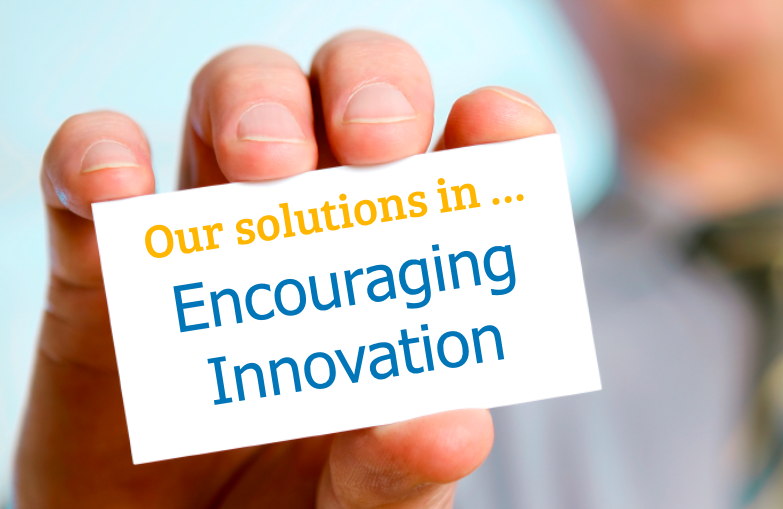Encouraging Innovation
Encouraging Innovation
 An innovation is a new or evolved method, process, idea, product, service, algorithm or concept that is realised though a discernible process by a group of people. An innovation has value to the firm and a direct or indirect impact on its customers. The innovation must be able to be applied at an economical cost to satisfy a market or an industry.
An innovation is a new or evolved method, process, idea, product, service, algorithm or concept that is realised though a discernible process by a group of people. An innovation has value to the firm and a direct or indirect impact on its customers. The innovation must be able to be applied at an economical cost to satisfy a market or an industry.
Our consultants have several innovative ‘firsts’, and even patents – across the technologies and industries. We understand what it is to innovate. But we also understand what’s needed to take innovation from ideas to successful products and services. And we can help you.
In the end, innovation is about people and how they are managed. Here are some of the issues with which our consultants will engage.
Importance of Innovation
Managers’ interest in innovation stems from a fundamental need to derive competitive advantage for their firms. To sell more and to make more profits than their competitors, all managers therefore strive to do more with less, to reduce costs, to make products more attractive and to improve quality. Such improvement is done through innovation.
Encouraging Innovation
Innovation doesn’t just happen. It must be encouraged. But it can’t be forced. Innovation involves a group of workers sharing a challenge in an environment in which the climate encourages the right behaviours for innovation. The management task is to create that climate.
Making Innovation Happen
Managers must set up the right conditions within their firms such that staff innovate. There are five main aspects of the firm that need careful nurturing.
Job Design
Jobs must encourage innovation. A job that focuses on rigid deadlines and that follows a strict process is unlikely to allow the freedom for innovation. And jobs must be designed to motivate.
Recruitment
Staff must be recruited and selected for their propensity to innovate. First, staff must have high domain-specific knowledge and skills. Second, they must have the right personality – with low conscientiousness and high openness to new ideas. People driven to dot the ‘I’s and cross the ‘T’s tend to do less well.
Culture
Because innovation is a group activity, innovators must have colleagues who revel in intellectual debate and who will openly participate in positive and negative criticism. And teams must be balanced – some people start activities and others finish – and the required personalities differ.
Challenge
Whilst freedom encourages innovation, there must be a challenge to be met and a noble purpose for the innovation. Innovation requires a process – first generating ideas, then sifting ideas and then realising outcomes. And like all processes, innovation needs to be managed.
Management Style
Managers must encourage risk taking, for without the freedom to experiment and take risks, ideas cannot flow. Management appraisal must centre on skill and knowledge development rather than behaviour control.
Call us for a discussion on how.
Here's what some of our clients said about us
I regard TimelessTime consultants as highly innovative in the way they solve problems.
The TimelessTime training solution was ideal. It covered the subject matter and minimised intrusion into the working day. The fact that everyone had to complete work before and after brought the training to life. Everyone turned up familiar with what was to be achieved in the 90-minute sessions.
We expect a lot from our staff. The environment in which we work is demanding. It’s not enough to be able to design solutions and write code. They must be able to manage both client and project to a satisfactory conclusion.